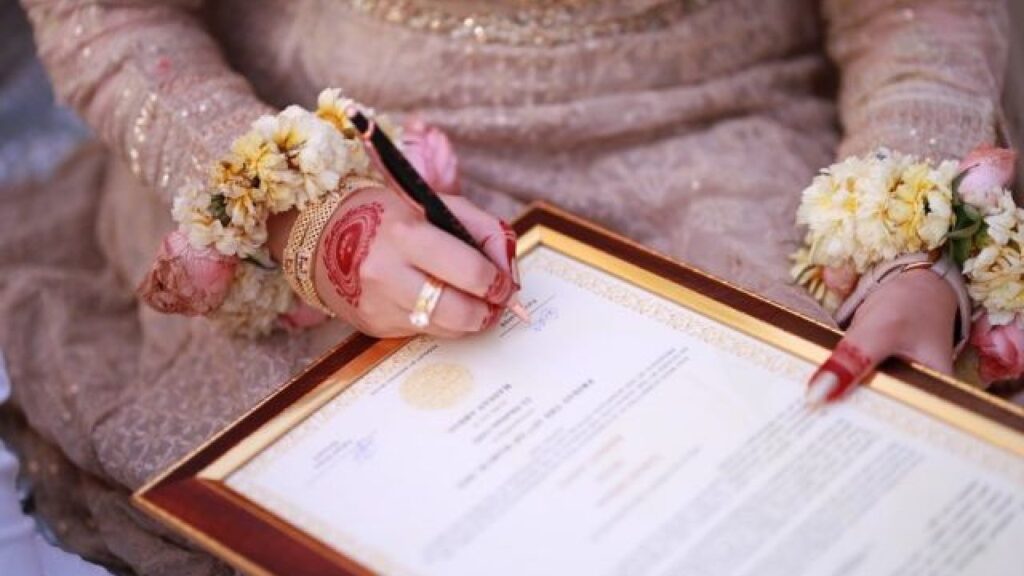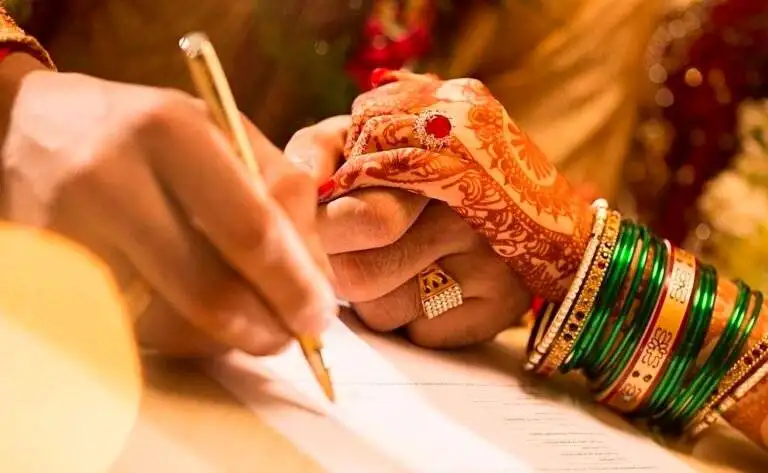Court Marriage: Simplified Legal Matrimony Process
Court marriage has emerged as an increasingly popular choice for couples seeking a straightforward and legally binding way to formalize their union. In Pakistan, court marriage is not only a recognized and lawful procedure but also a practical alternative to traditional wedding ceremonies. Whether driven by personal preferences, financial considerations, or the desire for privacy, many couples are opting for court marriage as a modern and efficient solution. Let’s delve into the details of the court marriage process and why it stands out as an appealing option.
What is Court Marriage?
Court marriage is a legally recognized union solemnized before a legal authority, such as a magistrate or registrar. Unlike traditional marriages that involve elaborate rituals, ceremonies, and extended family involvement, court marriage focuses solely on fulfilling the legal requirements for marriage. This makes it an ideal choice for couples who prioritize simplicity and efficiency.
Why Choose Court Marriage?
Court marriage offers numerous advantages over conventional wedding ceremonies. Here are some key benefits:
- Simplicity and Efficiency: The process is straightforward, requiring only the necessary documents and witnesses.
- Cost-Effective: Couples can save significantly by avoiding the expenses of lavish ceremonies and receptions.
- Privacy and Discretion: Court marriage allows couples to celebrate their union without public scrutiny or societal pressures.
- Legal Assurance: The process ensures that the marriage is legally binding, offering full legal protection to both parties.


Steps Involved in Court Marriage
The court marriage process in Pakistan is relatively simple and involves the following steps:
1. Preparation of Documents
To initiate the court marriage process, both parties need to gather essential documents. These typically include:
- CNIC (Computerized National Identity Card) or passport copies of both individuals
- Passport-sized photographs
- Proof of marital status (e.g., divorce certificate if previously married)
- An affidavit stating that both parties are marrying of their free will
2. Consent of Both Parties
One of the core principles of court marriage is mutual consent. Both parties must express their willingness to marry without any coercion. This ensures that the union is based on mutual respect and understanding.
3. Appointment of Witnesses
The presence of witnesses is a mandatory requirement for court marriage in Pakistan. Typically, two witnesses from each side are needed to validate the marriage contract.
4. Nikah Nama Preparation and Signing
The marriage contract, known as the Nikah Nama, is prepared by a legal professional or Nikah registrar. Both parties, along with their witnesses, sign the document in the presence of the registrar to formalize the marriage.
5. Registration of Marriage
Once the Nikah Nama is signed, the marriage is officially registered with the local union council or relevant legal authority. This step ensures that the marriage is legally recognized under Pakistani law.
Court Marriage Services in Major Cities
Court marriage services are readily available in key cities across Pakistan, including Karachi, Lahore, and Islamabad. Each city offers a range of professional legal services to guide couples through the process smoothly:
- Karachi: Renowned for its dynamic lifestyle, Karachi hosts experienced legal professionals who specialize in court marriage services, ensuring a hassle-free experience.
- Lahore: As a cultural and historical hub, Lahore offers personalized court marriage services that cater to couples seeking privacy and legal assurance.
- Islamabad: The capital city is home to expert lawyers who provide comprehensive support for court marriage, making it accessible and convenient for residents.


Important Considerations for Court Marriage
Before opting for court marriage, couples should keep a few crucial points in mind:
- Legal Age: The minimum legal age for marriage in Pakistan is 18 years for males and 16 years for females.
- Parental Consent: While parental consent is not mandatory for court marriage, it is advisable to inform families to avoid potential conflicts.
- Cultural Sensitivities: Respecting societal norms and traditions can help couples navigate potential challenges with greater ease.
Nutshell: Why Court Marriage is a Trusted Choice
Court marriage simplifies the journey of matrimony by focusing on what truly matters: the legal union of two individuals. It removes unnecessary complexities, offering couples a dignified and efficient way to formalize their relationship. Whether you’re drawn to court marriage for its privacy, affordability, or legal clarity, this process provides the perfect platform to begin a lifelong partnership.
For couples seeking expert assistance with their court marriage, our team of experienced professionals is here to guide you every step of the way. Contact us today to ensure a seamless and legally sound start to your married life.




